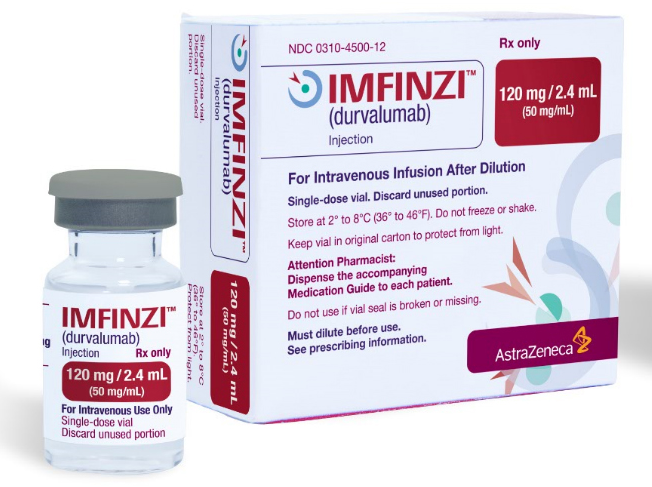Author: Joseph Belluck

New Dual-Immunotherapy Regimen Proves Effective for Mesothelioma Patients in Phase 3 Clinical Trial
Dr. Paul Baas of the Netherlands Cancer Institute and the University of Leiden in Amsterdam recently presented on the CheckMate 743 study at the International Association for the Study of Lung Cancer World Conference. The randomized phase III Checkmate 743 clinical trial prescribed mesothelioma patients who were not candidates for surgery with a combination of first-line nivolumab and ipilimumab.
The promising results yielded a four-month improvement in median overall survival for patients who received the new dual-immunotherapy regimen as compared with those who had received platinum-based chemotherapy, the current double-chemotherapy standard of care for mesothelioma.
“This is the first positive randomized trial of dual immunotherapy in first-line treatment of patients with unresectable MPM,” Dr. Bass noted. “And therefore nivolumab plus ipilimumab should be considered as a new standard of care.”
The patients featured in the phase III trial were randomly assigned treatment plans consisting of either a maximum of two years of nivolumab and ipilimumab, or six cycles of pemetrexed alongside cisplatin or carboplatin.
Results revealed that the treatment plan consisting of nivolumab and ipilimumab yielded comparable efficacy outcomes to chemotherapy for progression-free survival and objective response rate, but was significantly more successful than chemotherapy when it came to the duration of response (DOR). The DOR for the dual-immunotherapy treatment reached 11.0 months whereas the DOR for chemotherapy reached only 6.7 months.
“In the ipi/nivo survival curve, going out to 36 months, we see a plateau at about 30%,… suggesting, as we’ve seen with other trials of immunotherapy, there is a degree of durability that is way beyond what we’ve seen previously with chemotherapy. And this, indeed, may have been driven by maintenance nivolumab,” explained Dr. Dean Fennell of the Cancer Research UK Centre Leicester, University of Leicester and University Hospitals of Leicester NHS Trust.
Our medical experts can help you make sense of your treatment options and how to move forward. Reach out today.

Clinical Trial of Imfinzi (Durvalumab) in Conjunction with Chemotherapy Yields Significantly Longer Survival Time for Patients Diagnosed with Malignant Pleural Mesothelioma
Immuno-Oncology News recently published results of a Phase 2 clinical trial of the immuno-checkpoint inhibitor Imfinzi (durvalumab) for patients diagnosed with malignant pleural mesothelioma.
The PrECOG cancer research group tested the effects of pairing Imfinzi, an AstraZeneca drug that blocks the activity of the PD-1 receptor in immune T-cells, with standard chemotherapy on a group of 55 individuals who had been recently diagnosed with inoperable malignant pleural mesothelioma. The PD-1/PD-L1 pathway affects inflammation, which causes pleural mesothelioma to develop at a faster rate.
The trial revealed that patients who took Imfinzi in addition to running out courses of standard chemotherapy (pemetrexed with cisplatin or carboplatin) survived for an average of 20.4 months, whereas patients who were given only standard chemotherapy lived for an average of 12.1 months. 81.8 percent of participants were male, their median age was 68, and three-quarters of them had been diagnosed with the epithelioid cancer subtype of malignant pleural mesothelioma.
“[Imfinzi] plus standard chemotherapy delivered a promising median overall survival rate for patients with previously untreated, inoperable malignant pleural mesothelioma,” affirmed Dr. Patrick Forde, director of the Kimmel Center’s thoracic cancer clinical research program, in a news release from the American Society of Clinical Oncology.
AstraZeneca, PrECOG, and the University of Sydney have plans to enroll participants who have been diagnosed with previously untreated, inoperable malignant pleural mesothelioma in a Phase 3 trial in Australia and the United States in September. More details about the upcoming clinical trial can be found here.
If you or a loved one has been diagnosed with mesothelioma, reach out today for a free consultation. Our experts can assist you with medical resources as well as options for compensation from those responsible.

Discounting the Dangers of Asbestos Discounts the Value of My Father’s Life
The dangers of asbestos, even one exposure, are so frightening to me that I am paralyzed at the thought of someone coming in contact with it. Even the potential that you could be exposed is enough to bring tears to my eyes and cause serious anxiety. This applies to anyone, even a stranger, but what do you do when someone you care about doesn’t take these dangers seriously?
It is so painful when someone you love, someone who has walked this horrible mesothelioma road along with you, fails to take into account the possible ramifications of what could be caused by their negligence. My heart breaks for anyone who may come into contact with them who could also be exposed, and therefore, at risk. I am angered by their utter disregard for the memory of my father who lost his life to mesothelioma; it almost feels like they’re saying he died in vain.
It hurts when you try to explain to someone why you are concerned and they brush it off, simply saying, “It’s fine, I was careful!” or, even worse, “You’re just being ridiculous.” Is it fine that I’m left without a father, my mother without a husband, and my daughter without her grandfather? Is it ridiculous that I want to spare others from what my family had to endure? I don’t think so.
Some may say that this is overreacting, but to me, it feels like underreacting (if that’s a real thing). Families are torn apart each and every day by this cancer that could have been prevented by the elimination and proper removal of asbestos. If human lives were put in front of the dollar, we would be in a different situation right now with the continued spread of mesothelioma.
Sure, my words might cause some dissension, but I’m not afraid or ashamed to stand up for a cause that I believe in, one that is so real to me… too real. So, please, don’t be afraid to fight. Fight to be heard, fight to have your concerns addressed in a real way. Fight for those who cannot fight for themselves.

Unplug and Just “Be” With Your Loved Ones
Let’s face it, we all do it. We’re sitting with a friend or family member, and we half-listen to what they’re saying because we’re looking at our phone or other device. Unfortunately, this has become our “new normal.” We rely so much on technology that we sometimes start to “unplug” our real relationships. Phone calls replace visits, text messages replace phone calls… what’s next?
When my Dad was first diagnosed with mesothelioma, I didn’t even have a smart phone. To log on to social media, I had to sit down at a computer. This, in terms of technology, feels like it was such a simpler time. By the time Dad was in the hospital for the final time, I had just gotten my first iPad. I remember sitting in the hospital with him while he slept, using it to play a game. I was very in tune to the fact that Dad needed me, and that he needed me to be truly present with him, so I was actually quite good about putting my device down when he was awake. I knew it was important for both of us.
Please try to remember that people, not technology, need you. When someone you care about is with you, no matter their physical condition, do your best to unplug. Make real memories; they are what will be with you for the long haul. No amount of “likes” can take the place of having a real moment with your loved one. I would give up my phone, computer, everything… if I had the chance to make one more memory with my Dad.
Keep this in mind as you are moving forward. No amount of technology, no matter how life-like it may seem, can replace the company of your loved ones!

Holding My Father’s Music Close to My Heart
My father never claimed to be a musician. He said he just “played at” the guitar but loved singing and playing with his band. Dad began singing at Church when I was little, and he practiced constantly, his latest choice of song would be stuck in my head for days. Many Saturday mornings were spent with him at the Christian book store, listening to new music, carefully choosing one. He had specific criteria that he looked for when he decided on which song to pick. He loved songs that were a bit country, classic, and told a story.
I remember many times, listening to him sing, so full of pride that my eyes would fill with tears. It happened often, but always on Easter when he sang a song called “The Hammer.” It never failed that I would have to look away from him so that I wouldn’t sob. The powerful message of the music, coupled with the humility of the man singing it, were almost too much for me. Now, every time I think of that song, I instantly feel sad.
When I was little, Dad always sang “You Are My Sunshine” to me. It kind of became our song. On my wedding day, before he walked me down the aisle, he handed me a gold box containing a necklace with the lyric engraved on it. It is something that I will treasure forever.
Music means a lot to me, in that I find a lot of comfort in its message; it seems like, I too, enjoy a song with a story… another trait that I inherited from my father. It makes me smile, hearing ones that I would sing with Dad, or that he thought were funny or made no sense! It seemed like Dad always had a song in his heart, and that song exuded from him like a beautiful beam of sunshine.
I love having musical memories of someone who I loved, and still love, so very much. These are some of my favorite memories that I will always hold close to my heart.
Free Mesothelioma Patient & Treatment Guide
We’d like to offer you our in-depth guide, “A Patient’s Guide to Mesothelioma,” absolutely free of charge.
It contains a wealth of information and resources to help you better understand the condition, choose (and afford) appropriate treatment, and exercise your legal right to compensation.
Download Now